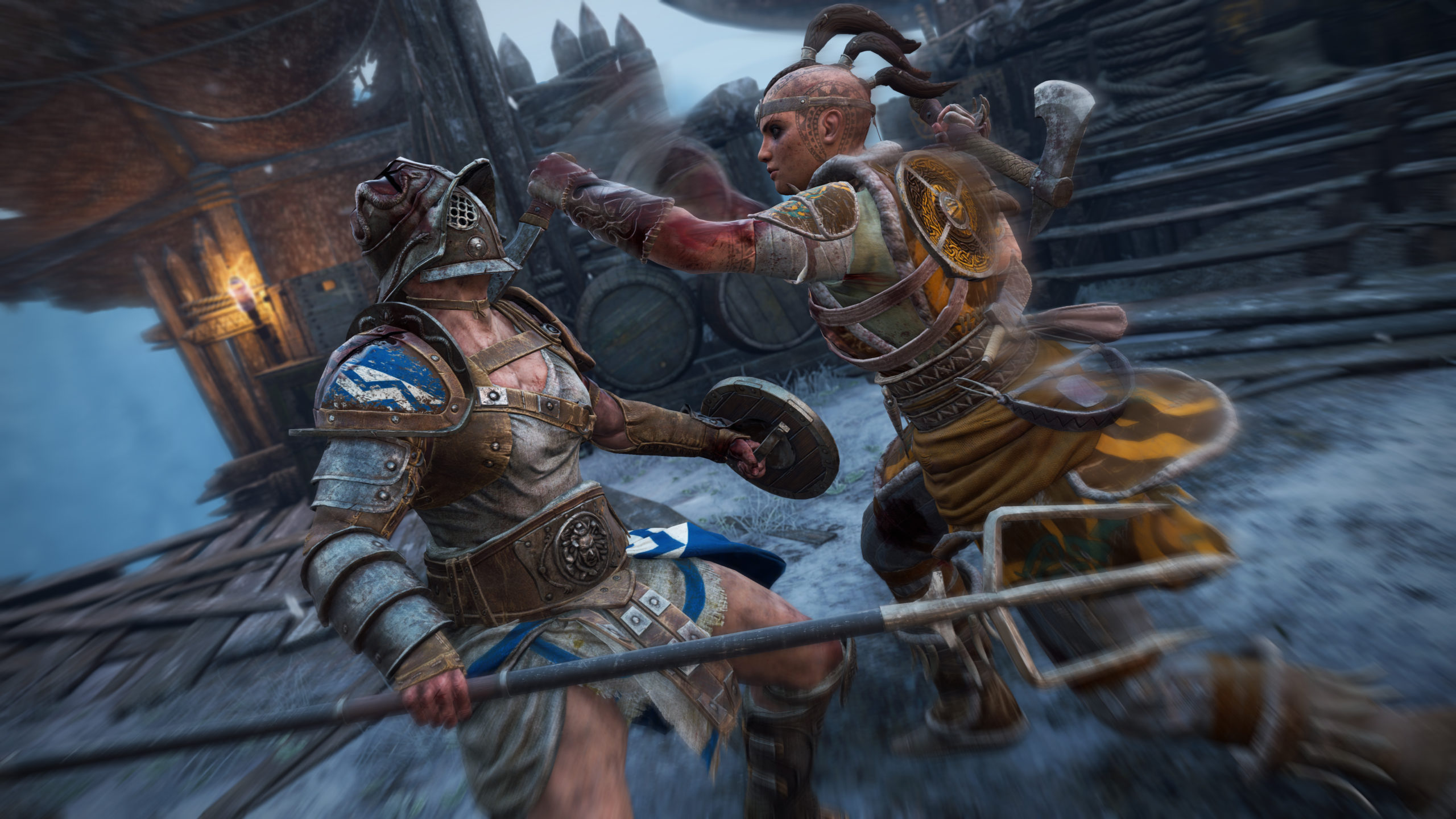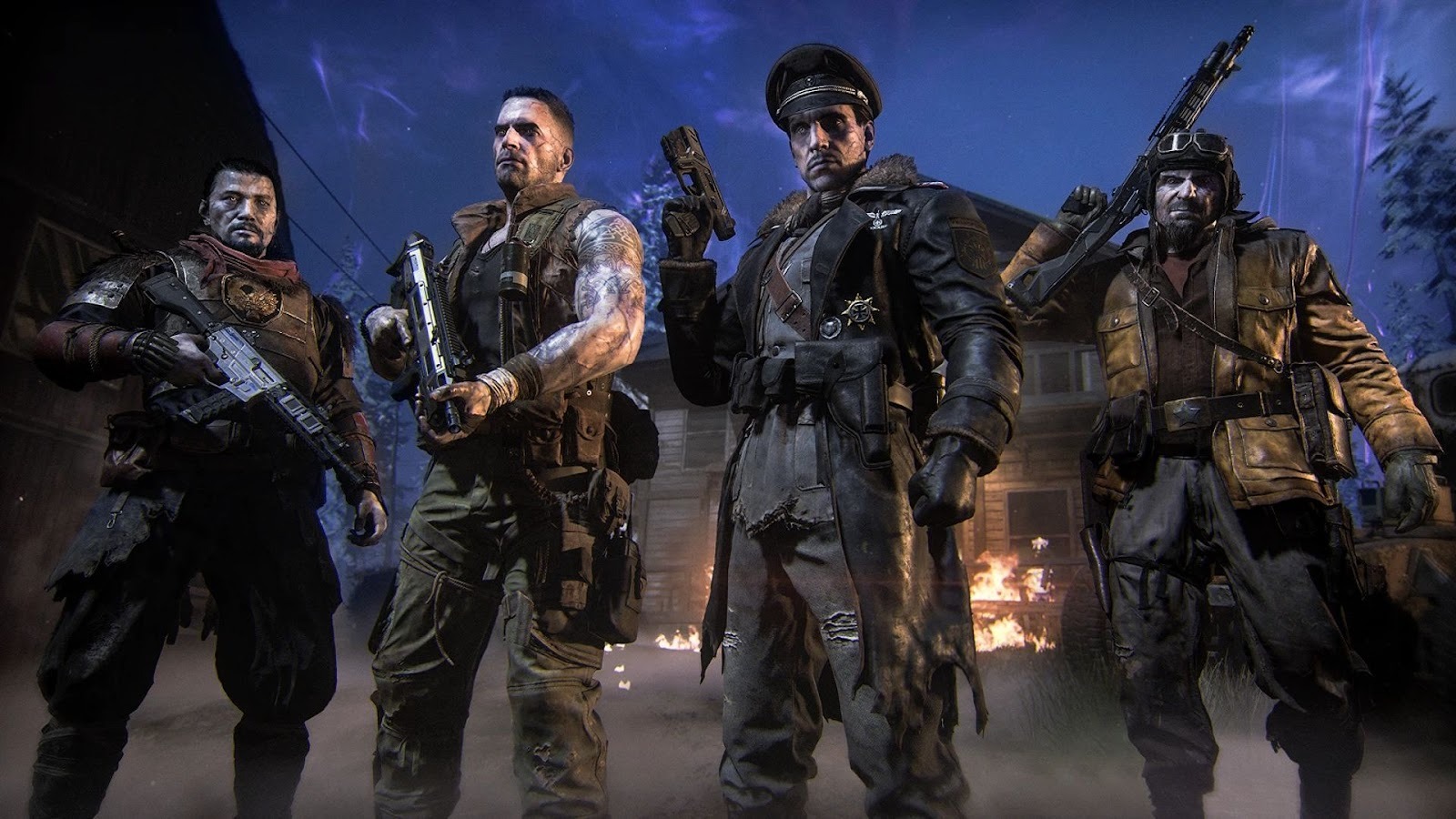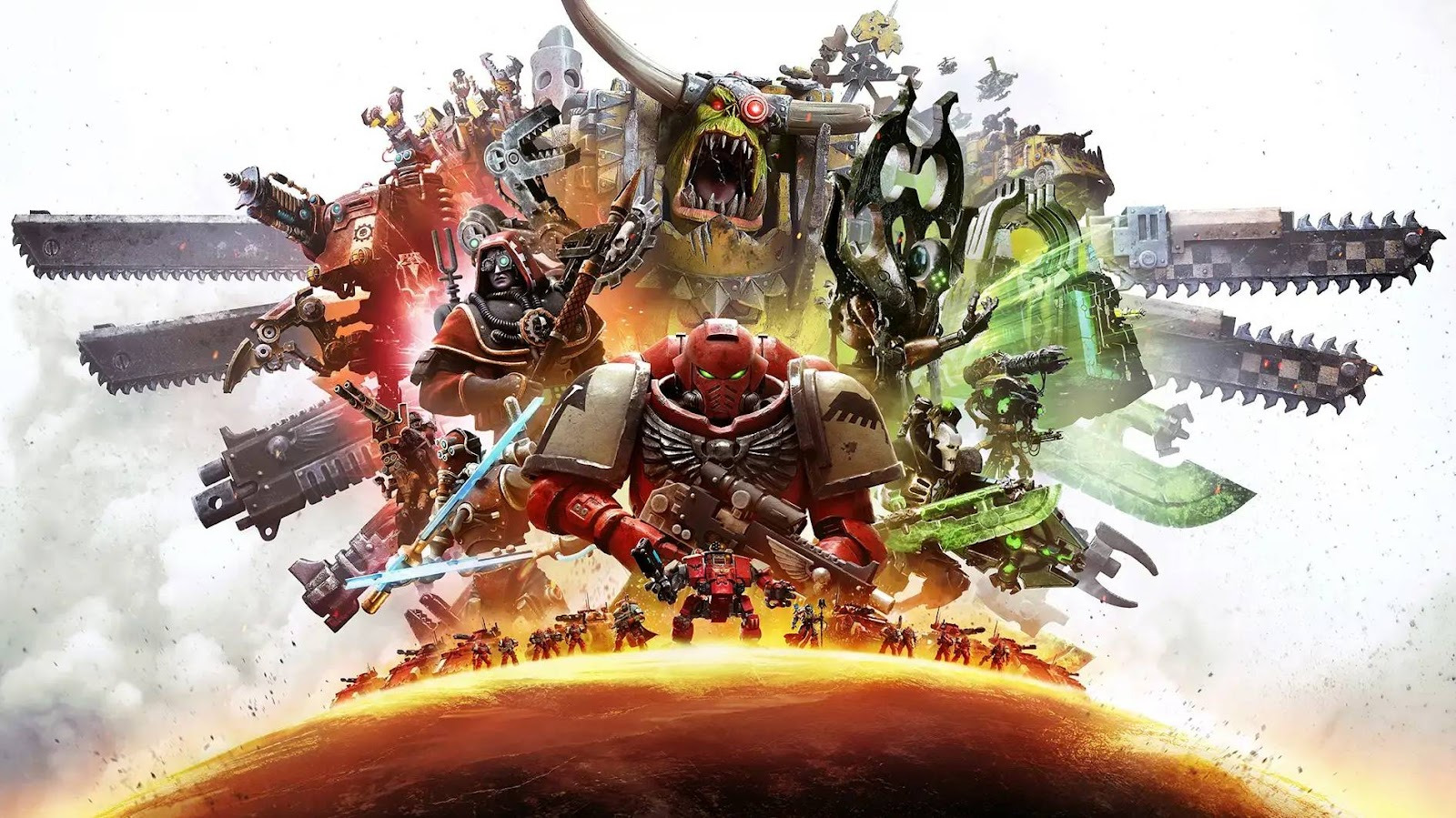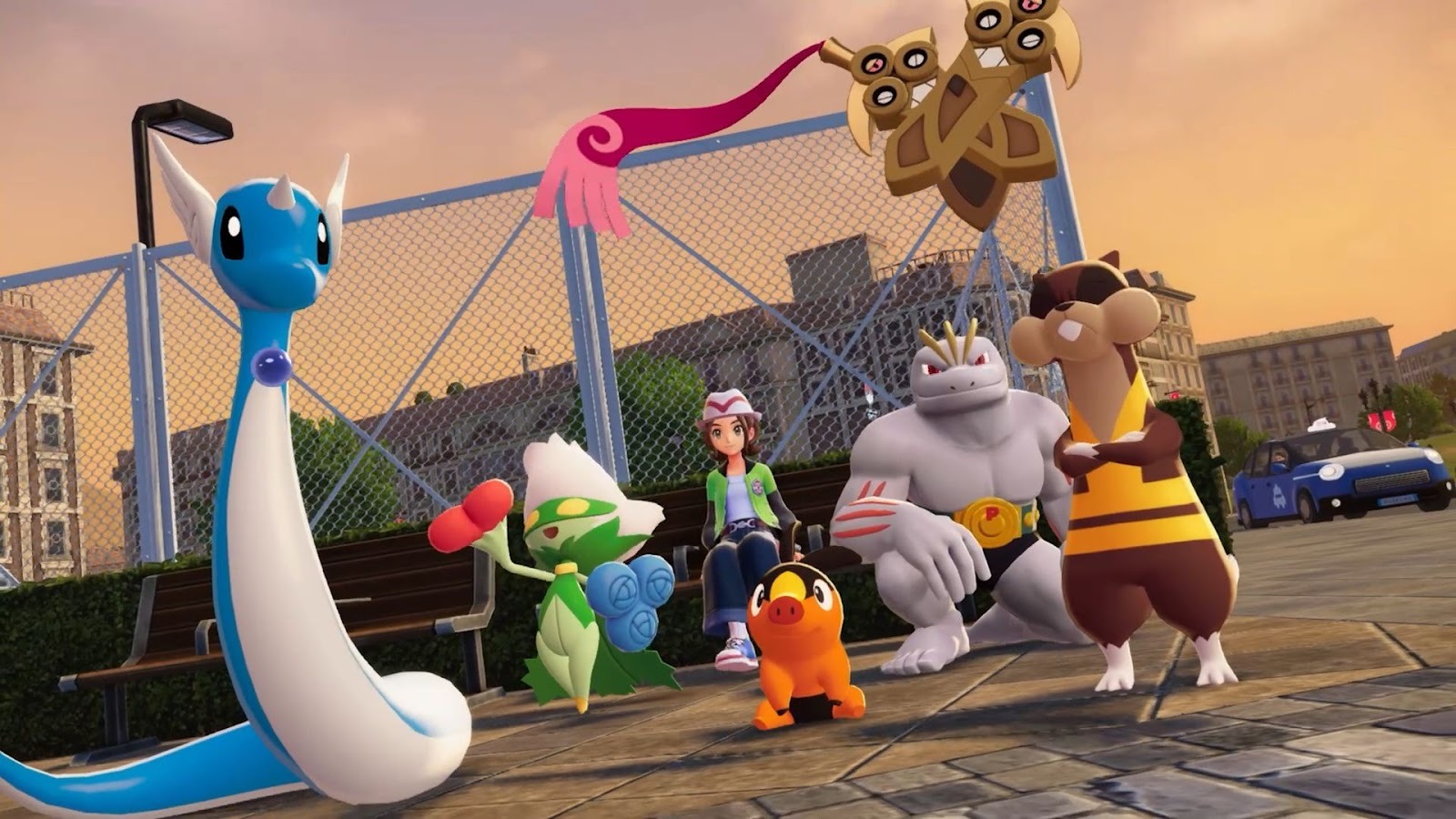You can trust VideoGamer. Our team of gaming experts spend hours testing and reviewing the latest games, to ensure you're reading the most comprehensive guide possible. Rest assured, all imagery and advice is unique and original. Check out how we test and review games here
This week the man Americans saw fit to make their President held a meeting with some high up members of the games industry and, by all accounts, showed them a montage of his favourite streamers some violent scenes from games like Sniper Elite 4, Fallout 4 and at least one of the interminably many Call of Dutys. This discussion has arisen in the wake of the most recent school shooting in America, where 17 young people were murdered. The White House appears to be whiplashing around to latch onto any potential cause for the tragedy that doesn’t involve the phrase ‘access to guns.’
The games industry is very pleased, meanwhile, that a very recent study from the University of York is summarised by Science Daily as ‘Researchers have found no evidence to support the theory that video games make players more violent’. The trouble with examining any effects that video games might have at all is that the term video games is itself unhelpfully broad. It covers all manner of sins (and genres, and platforms, POVs, single player or multiplayer, and so on and so forth). There are indeed many studies that show the potential benefits games can have – raise your hand if you’ve ever told your mates down the pub, ‘They’ve done a study that shows FPS games can improve your reactions!’ whilst vaguely waving a pint around – but different games can have different effects based on a terrifying number of variables, just just like how eating something healthy is great as long as you don’t eat it on the move, and bananas are amazing but not if you eat one by itself because then you might as well be eating a stick of sugar, you idiot.
Often when we, the lay people who like games – and are therefore kind of defensive about them because we’ve had to defend our hobby from our parents, peers and potential love interests for our entire lives so we’re not about to take that s*** from Johnny Science Nerd and Sally Soccer Mom lying down – talk about the effects of games we usually leave out the variables and nuances and talk about the monolith of just ‘games’. The kind of research you were on about in the pub, for example, does show that you’ll have better perceptual and cognitive skills than someone who doesn’t habitually play games, but you shouldn’t immediately start telling everyone that Assassin’s Creed has basically made you Superman; differences that are measurable and exciting to scientists won’t always lead to massive benefits in your everyday life. And that study by York University is actually very specifically on whether increased behavioural realism (like ragdoll physics) in violent games increases their effects. This lack of nuance in the discussion outside the scientific community is felt by Dr. Douglas Gentile, a developmental psychologist.
Gentile specialises in the effects of mass media, primarily on children and adolescents. He was the Director of Research for the National Institute on Media and the Family, founded by Dr. David Walsh and which you may remember for producing yearly report cards on the industry, and feuding with the ESRB every so often. Mostly the NIMF’s concerns boiled down to parents not paying attention to what their kids were playing, the public not really understanding the age ratings on games, and retailers selling games to underage players. These are genuine problems that persist today, but the NIMF members seemed to not really understand games or gaming culture from the point of view of the players. Consequently most of the advice aimed at parents was overshadowed by Walsh repeatedly trying to make the neologism ‘killographic’ happen (it never happened, so if you’re after a bitchin’ name for your nu metal band then go right ahead) and that one time a bunch of mainstream outlets picked up on the idea that cannibalism in games was a new trend because of the NIMF highlighting a couple of zombie games.
It’s important to remember that Gentile was conducting research on behalf of the NIMF, and some of it with Walsh, as you read this. It’s now been almost 10 years since the NIMF closed, but far from being a Whitehouseian spoilsport demanding we censor our games this very instant, Gentile is both reasonable and surprisingly funny.
‘I get those emails too: “I played these games all my life and I never shot anyone, so I’m going to come right over there and kill you, you motherf***er.” They actually write this to me! And it’s like, well, the games have clearly destroyed your sense of irony,’ he laughs, with a mixture of incredulity and amusement. Gentile gets flack from the game playing public and other colleagues in his field criticising his methodology, and is a particular focus of our ire because he says that habitually playing violent games like shooters can make the player more aggressive. Your reaction to that statement is probably already hostile, but Gentile’s research makes a distinction between aggression and physical violence. ‘The critics of the literature will say, “Well there are no studies showing that violent video games lead to real world violence!” and they’re basically correct about that,’ he says. ‘But that’s a different issue.’
For the purposes of understanding Gentile’s research, ‘aggression’ can basically be thought of as being kind of mean. No one wants to think of themselves as a mean person, and we learn early on that there are consequences for being kind of mean, but, despite that, there are times that we have all been kind of mean. Saying unkind things to friends and family, being passive aggressive and ignoring people, trying to hurt someone’s feelings on purpose, are all forms of the kind of aggression Gentile is interested in. Gentile did a study that tracked 3,000 children in Singapore over a couple of years, and measured firstly how much they played violent games, and secondly their being kind of mean ways of thinking. This last part was measured in three ways: hostile attribution bias, which measures how likely you are to think annoying things that happen to you were done on purpose; normative beliefs about aggression, meaning how acceptable you think it is to respond to provocation with being kind of mean above anything else; and aggressive fantasies, or, the amount of time you spend thinking about how you’d like to be kind of mean to other people. Over Gentile’s study, the kids that played more violent games were exhibiting more of these thought patterns.
/https://oimg.videogamer.com/images/210b/54ca7306-2594-4608-b7f6-572e5b809781_BlackOps4.jpg)
That doesn’t mean that games don’t have any positive effects – and Gentile has done research into how ‘prosocial games’, where you help characters in-game, can teach prosocial behaviours too – but the learning mechanisms of practise and repetition are the same in either case. The idea is that when you play a game like a Call of Duty, or even an Uncharted, you’re constantly assuming that things moving on the map are hostile, responding to them aggressively, and are rewarded for doing that efficiently and well. And if you do that a lot, it’s one of the first things your brain can recall how to do in other situations.
But, and this is important, Gentile says that doesn’t mean that it will translate to aggressive behaviour in real life, and even if it does then a conflict that breaks out between two gamers won’t be them copying what they’ve seen in the game because, as many of us will readily admit, we don’t have the skillset or capabilities of the big hench marine we’ve been pretending to be. ‘That’s not how this effect works,’ Gentile emphasises. ‘What happens is it changes the way you think and see the world. And you carry the way you think and see the world with you everywhere.’
Gentile doesn’t say that playing violent games will automatically make you more aggressive, but that it adds another card into the continually shuffling deck that makes up each individual person’s risk and protective factors. Games have about the same effect as habitually watching violent movies and TV, a little more than coming from a broken home, and not as much as being in a gang. These factors are also affected by your day: if your train was cancelled, you stood in a puddle, you dropped coffee down your shirt, and you dropped your phone and cracked the screen, you’re much more likely to want to tell your boss to rack off if they get at you for being late to work. A risk factor is still a risk factor for everyone, it just probably won’t overwhelm all your other factors, and in fact the older you get the less likely you are to be aggressive, because you get more protective factors. Gentile says that the most aggressive people on the planet are two year olds. Terrible twos are very willing to hit others but, says Gentile, ‘They’re just not very good at it!’ But all this isn’t the same as saying games have no effect at all. Gentile’s comparison is that not all smokers get sick, but that doesn’t mean that nothing has happened to their lungs.
This is why Gentile says talking about violent video games as a cause of violence like school shootings doesn’t make sense. It’s such an extreme level of aggression there would be a number of much more important risk factors at play: ‘The minute we have a school shooter we ask the wrong question: what was the reason? There is never a the reason! For any human behaviour! Humans are more complicated than that!’
Gentile popped up into our collective awareness again recently for welcoming the World Health Organisation moving to classify gaming addiction as an actual thing. The WHO is not, he says, trying to pathologize games or gaming in general. ‘I started studying video game addiction because I thought there was no way it could be real. And I kept trying to disprove it! And I kept not being able to disprove it.’ What many of us have missed, he feels, is that addiction – like almost all mental health disorders – is defined by how much it disrupts your life. Everyone has anxiety responses sometimes, but that doesn’t mean everyone has an anxiety disorder; most of us know someone who can drink a lot without suffering any ill-effects, while others can drink only a little bit and become angry, harm their family, or harm their work. If you’re a pro-gamer, or you work in games development, or you’re a successful YouTuber, playing games a lot is helping your life. ‘No one’s saying gaming is a bad thing,’ says Gentile. ‘When the gaming harms the rest of your life, that’s a bad thing. Until it gets to that level, it’s a fine thing! And most people never get to that level.’
But if we do… we might not even notice.
In the same group of 3,000 Singaporean children, some were observed to play games in a way that qualified as an addiction. As the children became addicted their depression, anxiety and social phobias increased. If they stopped being addicted it tracked in the other direction: their disorders decreased. The data suggested that the gaming addiction started before the other problems, but Gentile thinks it’s actually showing clearly that gaming addiction is comorbid with other problems – that is, where you get one mental health disorder you also find others, and they combine to make each other worse so you can’t just treat whichever one presented symptoms first. More interesting is the potential that, if a gaming addiction is a problem for a patient, they might not even know it’s a problem at all. Gentile uses a phenomenon he’s noticed at the university he teaches at as an example:
‘If students with this problem walk into the student counseling center they talk about their grades being a problem, and the therapist – appropriately – asks grade relevant questions: Do you go to class? How do you take notes? Are you getting enough sleep? The therapist doesn’t ask about gaming, because the kid didn’t say he had a problem with gaming. The kid doesn’t talk about gaming because to the kid it’s the solution. That’s the way they cope. So no one talks about it.’
One of the effects of spending time playing games is that you’re not spending time doing something else. If you play games as a coping mechanism for your relationship souring, for feeling socially isolated, or for your grades dropping, then that’s potentially time you’re not spending on your significant other, on talking to your friends, on studying. Coping is coping, but it isn’t always the same as helping.
From Gentile’s point of view, games aren’t a problem, and the problem is instead with the gamer in that, ‘Some gamers get it out of balance, and they might need help to get it back in balance.’ There’s a middle ground between the sensationalist view that games have extremely bad effects and the view that they have only good effects, and for Gentile it’s important we acknowledge the potential harm so that we’re paying attention when someone might need help. ‘Let’s say, yeah, games are fantastic, and they’re great at lots of things, they can have many benefits – and they can have some harms,’ he says. ‘Let’s maximise the benefits and minimise the harms. But if we always shield our eyes from half of that story we’re not going to do as good a job of maximising the benefits and minimising the harms.’
So, Mr. President, if you think that young teens and children shouldn’t be playing these games then I would agree with you, and this is why the games have age ratings on them. I did work in games retail for a while, and it was always strange to me that parents seemed unable to understand said ratings until you compared it to film ratings, at which point they were less likely to buy Timmy a copy of GTAV (although the other unsettling thing was that Timmy only wanted it because all his little friends already had it).
Games are fantastic, and they are great at lots of things, and I believe that to the extent that I’ve devoted the majority of my adult life to them. But given that the Black Ops 2 devs got death threats after slightly tweaking three in-game weapons, and Jeff ‘From the Overwatch Team’ Kaplan confirmed that having to deal with player toxicity was slowing planned updates to Overwatch… is it that hard to believe games can make us a little bit more likely to be mean?
/https://oimg.videogamer.com/images/77d0/ec299ad3-c57e-4acf-becf-28745f5f618b_ss_a3ddf22cda3bd722df77dbdd58dbec393906b654.1920x1080.jpg)







